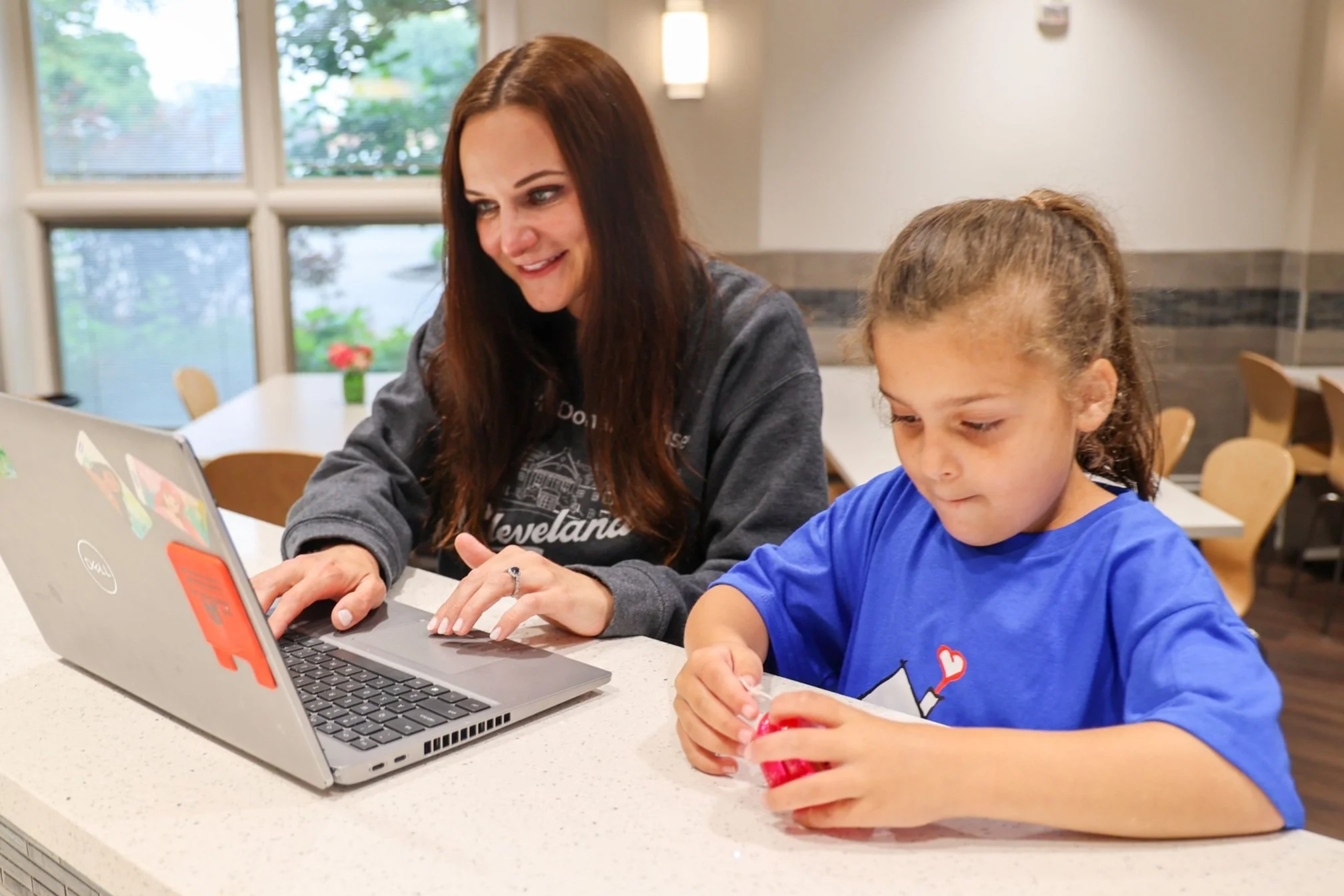Using AI to Find Medical Information
Your child has just received a new medical diagnosis and sent you on a parenting path you never expected. You have questions and want answers, but time spent directly with your child’s medical team may be limited.
With a computer or smart phone, you have access to a lot of information right at your finger tips. Knowing what to search, how to search, and whether or not to trust the results can be overwhelming, especially as artificial intelligence (AI) tools enter the chat.
What are AI Chatbots
AI chatbots are computer programs that can answer questions and help you find information through conversation. You ask a question, and AI chatbots give you an answer. They are often designed to answer in a way that makes you feel like you are talking to or texting with a friend. It is important to remember that these tools have been designed with intention and purpose. While they can help you find a lot of information quickly and efficiently, there are risks involved when using an AI tool for knowledge, understanding and support. It is important to continue to work together with your child’s medical team and review information gathered through AI.
Getting Organized
Before you start researching, get yourself organized. AI Chatbots will give you summary answers and lead you to articles, organizations, and tools that can help you further understand your child’s medical condition. Creating an organizational system will help you collect and save the information you find so you aren’t left trying to remember where you read something.
Create a central spot to save all of the information you find. Having all your information in one location makes it easier to return later and to share with your child’s medical team.
Download the AI chatbot app that you prefer and create an account so that it will automatically save your questions, answers, and conversations. AI Chatbots that are mobile friendly and allow you to create accounts and save your search results include ChatGPT, Claude, Perplexity.AI, and Google Gemini.
Create a digital folder specifically for your child's care using the notes feature on your phone. These videos can help you learn how to create a digital folder whether you use an Android or Apple device.
Watch this video to learn more about digital bookmarks in commonly used web browsers.
If you like to read and review things on paper, you can print articles and bring them to your child’s appointments. Be sure to write down where you found the article as knowing the source matters.
Set a timer and stay focused. Researching your child's condition can consume hours, leaving you feeling exhausted rather than empowered. Focus on quality time spent researching and reviewing information rather than dedicating a large quantity of time to the process.
Set aside 20-30 minutes for focused research and set a timer to tell you when to stop.
Choose 1-3 big questions for each research session.
Take a break after the time is up to allow yourself to process what you learned.
Keep a parking lot for new questions. As you learn about one topic, you'll naturally develop more questions. Instead of getting sidetracked or ignoring your time limit, make note of those questions for later.
Keep a notebook or use your phone's notes app to record new questions.
Review your list at the end of each research session and select key questions/answers that you want to review with the medical team.
Use a color-coding system to organize information and easily identify which individuals should be asked specific questions. Medical questions should go to a doctor or nurse, while social service or billing questions could be best answered by a case manager or social worker.
Using prompts & Asking clear questions
An AI chatbot prompt is information that you give to an AI chatbot to initiate a conversation. It can be a command, question, or statement that guides the chatbot's response. These are some common prompts that you can use to begin your conversation and research with an AI Chatbot.
Define and explain [medical condition].
What 5 questions should I ask my child’s medical team about [medical condition]?
What other information do you need to give me better answers about [medical condition]?
When consulting an AI chatbot it is important to be clear and specific. The better the prompt, the more accurate and helpful the chatbot's response will be.
Here are a few tips to guide you in your QUEST for information:
Q - Question clearly stated — Begin with clear questions using "How," "What," "When," or "Why,” and ask follow-up questions to explore specific points as they come to the surface.
"What are 3 ways to support my child with sensory challenges at school?"
U - Understand my child's needs — Include relevant details about your child's specific situation.
"My 8-year-old with autism struggles with loud noises during lunch"
E - Exact number of suggestions wanted — Specify how many ideas or resources you want to receive, and use the word "pause" after complex questions to get clearer responses.
"List 5 local resources for families of children with autism, pause."
S - Sources and evidence requested — Ask AI to include where its information comes from and the credibility of the source.
"Please note where this information came from and the credibility of the information.”
"Please include the source of each response with a link to the original information.”
“Please cite the author and publisher of the answer and the original link where the information was found.”
T - Type of format preferred — Specify how you'd like information organized.
"Summarize the main treatment options for type 1 diabetes in a simple bulleted list."
"Include a three-sentence summary of each response and list and define any acronyms or abbreviations.”
“Organize all information in a chart with the following columns: Answer, Author, Link, Summary.”
Reflecting on your research results
If you find information about new treatments or exciting advances in research, discuss these with your child’s team before making any decisions about care. Share the information you have found and ask:
How does this information apply to my child's specific situation?
Are there resources or specialists you recommend based on this information?
How does this information impact our current care plan?
AI Chatbots are a great tool to help you find quick answers, organize information, and prepare for conversations with your child’s care team. No matter how intelligent AI Chatbots are, they are not a replacement for medical professionals, and they cannot diagnose or treat your child’s unique needs. Using AI chatbots can help you build knowledge, empowering you to be the best advocate for your child.
More from RedTreehouse.org
Written by: Megan Vogias, Certified Generative AI Expert and Prompt Engineer, with over two decades of experience in education, training and development. Megan is the founder of Evlogiménos, a training and communications firm, and an educator with expertise in adult education. To learn more, connect and follow her on LinkedIn.


